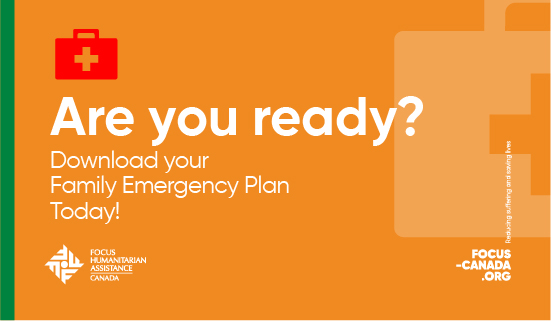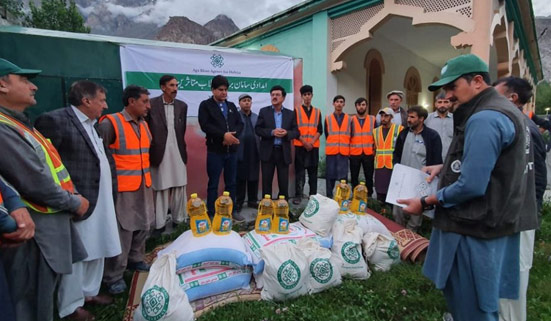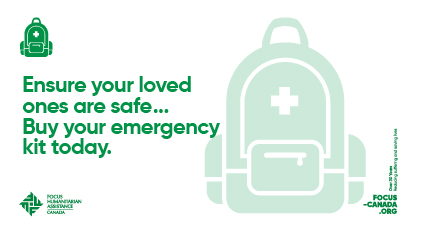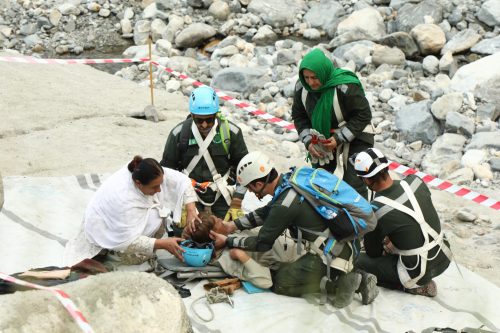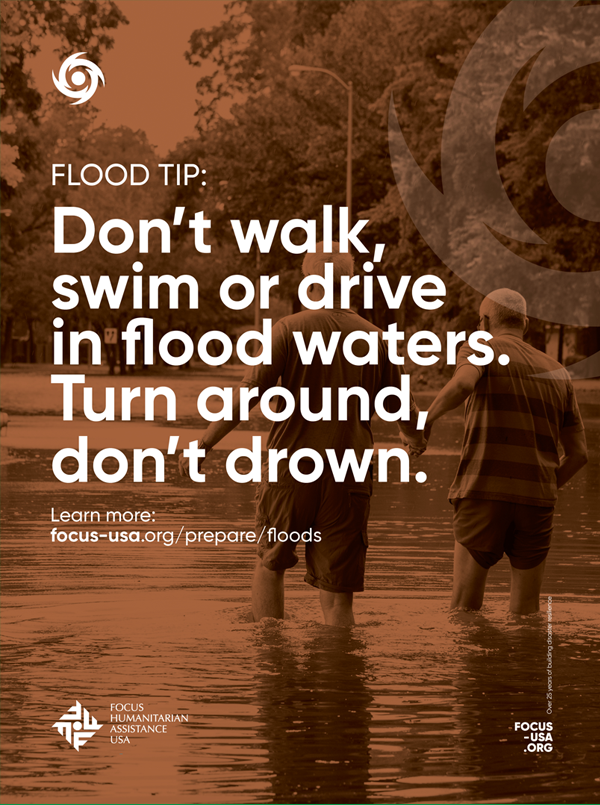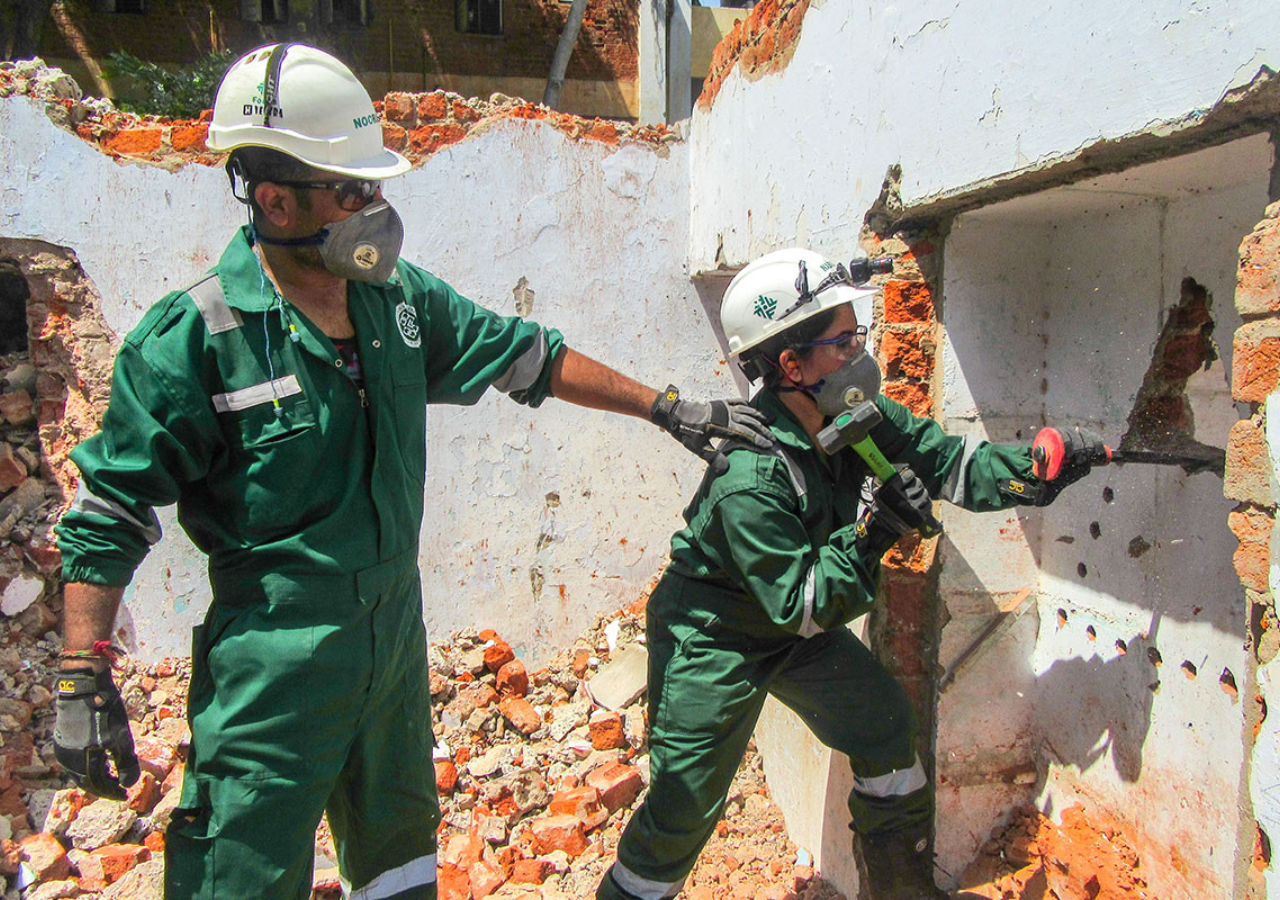In recent weeks, flash flooding and glacial lake outbursts have caused widespread destruction across Pakistan, especially in Gilgit-Baltistan, Chitral and other vulnerable mountain communities. Due to monsoon rains triggering flash floods and landslides, villages have been severely affected, homes damaged, farmland submerged, and livelihoods disrupted.
Emergency operation centres set up by the Aga Khan Agency for Habitat (supported by FOCUS) in Gilgit-Baltistan, Chitral, Karachi and Islamabad are monitoring the situation closely and keeping residents informed. They are also working closely with local authorities to provide warnings and evacuate people at risk to safer ground.
With over 20 years of experience in disaster response, trained Community Emergency Response Team (CERT) volunteers, over half of whom are female, are working closely with Emergency Operations Centres and Incident Command Posts to provide critical assistance.
So far 3,000 people have been safely evacuated in affected areas by CERT acting on early warnings and flood alerts. From pre-positioned stockpiles in Gilgit-Baltistan and Chitral, more than 800 individuals have received a month’s supply of food and non-food items. In Diamer, CERT rescued stranded residents and tourists, while other volunteers are working tirelessly to restore damaged water supply lines and irrigation channels.
Meanwhile, Disaster Assessment Teams are conducting field surveys throughout Northern Pakistan to plan for further recovery programmes. During their efforts, AKAH is working closely with the Gilgit-Baltistan Disaster Management Authority, the District Disaster Management Authority in Chitral and the Provincial Disaster Management Authority of Khyber Pakhtunkhwa.
The Aga Khan Rural Support Programme (AKRSP) is helping repair roads and water systems, though widespread destruction of bridges and roads continues to limit access. They are also collaborating closely with government authorities to conduct damage assessments and prioritise rehabilitation projects.
Healthcare workers from the Aga Khan Health Services and Aga Khan Health Board are running medical camps, deploying mobile teams, and providing hygiene support to prevent outbreaks of disease.
According to the National Disaster Management Agency of Pakistan, almost 400 lives have been lost in the torrential downpours and landslides, with rescuers still working to recover missing people. Landslides and flash floods are common during the monsoon season (June–September), but the intensity and frequency of recent events underscore Pakistan’s extreme vulnerability to climate change.
The Aga Khan Development Network (AKDN) announced support for flood-affected communities in Gilgit-Baltistan following a request during a meeting with Chief Minister Haji Gulbar Khan. The meeting took place in Islamabad with other AKDN and Jamati leadership present. The Chief Minister had earlier written to Mawlana Hazar Imam requesting support for the region.
Many parts of Northern Pakistan are still recovering from the severe flooding of 2022, the worst in the country’s history, which caused an estimated $40 billion in economic losses. With further rains forecasted in the coming weeks, Jamati institutions, AKDN agencies, government bodies, and local and international partners remain on high alert. Together, they are working not only to provide immediate relief but also to address the monumental task of long-term recovery and reconstruction.
FOCUS continues to work closely with its AKDN partners to support these and other prevailing crises around the world.

